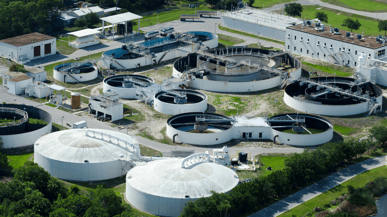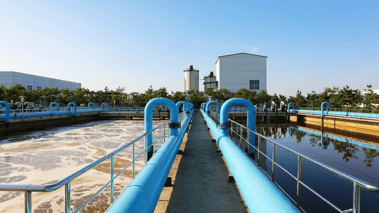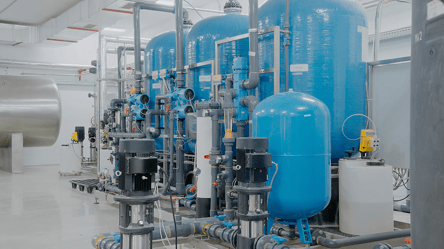

Opportunities for Dutch exporters in the water and sanitation sector in Brazil

Sustainability and Innovation
In recent years, the water and sanitation market in Brazil has witnessed a significant surge in demand for technological innovation and investments. Given the Netherlands' robust and extensive expertise in water management, Dutch companies are well-positioned to leverage this opportunity. After diving into the report Brazil’s New Sanitation Framework,
commissioned by the Netherlands Enterprise Agency, I decided to write this blog. The information shared in this article is coming largely from this report.
Current market scenario
Despite Brazil's substantial economy and rapid urban population growth, there has been a noticeable lack of investment in water management and sanitation infrastructure. This gap is particularly apparent when compared to sectors like energy, telecommunications, and transportation, which have achieved more widespread coverage across the country. To illustrate, while access to electricity and the internet saw significant improvements between 2010 and 2020, sewage collection still reached less than 60% of the population by 2020.
Several factors contribute to the sluggish progress in the Brazilian water sanitation sector. Firstly, expanding infrastructure networks is costly and time-consuming. Additionally, sanitation investments have often been viewed as having lower political importance, despite its clear benefits for the population. The sector also exhibited characteristics of a "natural monopoly," with complex vertical integration and a need for coordinated planning. Historically, this has led to a concentration of services and management in the public sector. Furthermore, national factors like the vast and diverse territory, outdated legal and administrative structures, and limited public investment capacity have deterred private investments in the sector.
Opportunities
The recent increase in demand and developments within the sector has prompted the Brazilian government to take measures aimed at attracting investments into it. This initiative gained momentum in 2020 when the legal framework for sanitation underwent substantial changes, leading to the establishment of a new regulatory framework. This framework emphasizes decentralization of the value chain and encourages stronger collaboration between private and public sectors. After the setup of the new regulatory framework, more than 20 auctions have been conducted for sanitation service concessions, benefiting a population of over 30 million users.
 Between 2018 and 2020, Brazil allocated R$ 50.5 billion for sanitation investments, representing only 32.5% of the required funding for that time frame. Throughout history, investments in sanitation infrastructure in Brazil have consistently fallen short due to limited investment capacity.This investment gap sharply contrasts with the substantial funding needed to meet water and sanitation targets, which are estimated at over 74 billion annually. Consequently, Brazil currently faces a deficit in its sanitation infrastructure investment plan.
Between 2018 and 2020, Brazil allocated R$ 50.5 billion for sanitation investments, representing only 32.5% of the required funding for that time frame. Throughout history, investments in sanitation infrastructure in Brazil have consistently fallen short due to limited investment capacity.This investment gap sharply contrasts with the substantial funding needed to meet water and sanitation targets, which are estimated at over 74 billion annually. Consequently, Brazil currently faces a deficit in its sanitation infrastructure investment plan.
Marketplace for Dutch companies
The Brazilian water market presents a compelling blend of opportunities and challenges for Dutch companies. One of its significant strengths is the substantial demand for infrastructure expansion, propelled by the low coverage of water and sewage services and the ambitious targets established by the regulatory framework. Notably, private operators, including two of the country's largest sanitation companies, are experiencing rapid growth, which translates into reduced bureaucracy and a strong focus on operational efficiency for Dutch firms entering the market. These decentralization elements within the new framework and the potential privatization of major public utilities add to the market's allure. However, the market also exhibits weaknesses, including deficient infrastructure in certain regions, a shortage of skilled labor, and intricate tax and labor regulations. Moreover, political instability, possible regulatory changes, and economic fluctuations pose inherent risks.
Focus water management areas in the Brazilian market
The identified opportunities span various areas, including digitalization of the registry process, equipment supply to reduce water losses, digital solutions for minimizing real and apparent water losses, diversification of water sources, water reuse solutions, decentralized treatment, operational efficiency, and optimization solutions. Dutch companies can leverage their expertise to make a significant impact in the Brazilian water and sanitation sector while aligning with the country's evolving needs and priorities. Let’s further, discuss a few of these areas in depth:
- Water Reuse

Water reuse is becoming a promising avenue for Dutch companies in Brazil, offering significant potential in the coming years. While it's important to note that Brazilian regulations currently do not permit direct potable water reuse, there is a growing market for other forms of water recycling. The primary challenge in developing the water reuse market in Brazil has been the lack of standardized regulations. However, recent years have seen significant progress in this regard, with states defining required water quality standards and the New Sanitation Regulatory Framework granting the National Water Agency (ANA) a regulatory role, which may lead to more consistent regulations on water reuse throughout the country.
The key business opportunities within this trend for Dutch companies include equipment supply, consulting services, technical expertise, and the provision of comprehensive solutions for individual clients. As water reuse gains momentum in Brazil, Dutch companies can play a pivotal role in meeting the country's growing demand for sustainable water management and wastewater treatment solutions.
- Supply of Equipment for Diversification of Water Sources – Desalination
This opportunity involves supplying equipment focused on diversifying water supply sources, with a specific emphasis on desalination. This includes providing membranes, compact desalination stations, new desalination equipment, and related components.
 Brazil's extensive maritime coast, particularly in the northeast, provides ample opportunities for implementing desalination plants to meet human freshwater supply needs. The new Regulatory Framework's requirement for 99% water coverage will necessitate serving populations in extremely dry regions, driving the demand for diverse water sources. The large-scale desalination process is relatively new in Brazil, resulting in a limited number of established companies in this market. Desalination solutions tend to have higher operational costs compared to traditional sources like surface water and groundwater, which may affect the interests of companies and utilities.
Brazil's extensive maritime coast, particularly in the northeast, provides ample opportunities for implementing desalination plants to meet human freshwater supply needs. The new Regulatory Framework's requirement for 99% water coverage will necessitate serving populations in extremely dry regions, driving the demand for diverse water sources. The large-scale desalination process is relatively new in Brazil, resulting in a limited number of established companies in this market. Desalination solutions tend to have higher operational costs compared to traditional sources like surface water and groundwater, which may affect the interests of companies and utilities.
- Supply of Equipment for Decentralized Treatment
This opportunity involves supplying equipment for decentralized treatment to sanitation operators, enabling them to be more efficient in achieving contractual water and sewage coverage goals. Approximately 35 million Brazilians still do not have access to potable water, and 100 million lack sewage treatment. Implementing decentralized solutions can help expand access to remote and hard-to-reach regions where traditional sanitation infrastructure is scarce.
Decentralization of water and wastewater treatment enables the use of innovative technologies, such as more efficient and sustainable treatment systems, including water reuse and energy generation from organic waste. These solutions can bring economic, environmental, and social benefits. Implementing decentralized solutions requires significant investments in infrastructure and technology. Initial costs can be high, necessitating government financial support, public-private partnerships, or other forms of financing to make projects viable.
-
Energy Efficiency Solutions
This opportunity involves innovative technologies and solutions that reduce energy consumption in water and sewage treatment plants or pumping stations, contributing to the reduction of operational costs and environmental impacts. Environmental legislation and regulations are becoming more stringent in the wastewater sector. Regulators are setting higher targets and requirements for energy efficiency in water and wastewater treatment operations. This is driving demand for solutions that reduce energy consumption and the carbon footprint of sanitation facilities.
Energy efficiency significantly reduces operating costs in the sanitation sector, as these costs represent about 30% of the operational expenses. Private companies, which are gaining market share, are paying special attention to being more efficient. Implementing energy efficiency solutions often require significant investments. The return on investment can take some time to achieve, which can pose a challenge for sanitation companies, especially smaller ones that may have limited financial resources. Implementing energy efficiency solutions requires a detailed analysis of existing operations and the integration of different systems and technologies.
 Summing up
Summing up
The water management and sanitation sector in Brazil offers substantial opportunities that resonate with the expertise and capabilities of Dutch companies. Brazil faces a notable deficiency in water management and sanitation infrastructure, making it an ideal market for Dutch exporters to engage with. Dutch companies, eager to export their water and sanitation solutions to Brazil, should anticipate and overcome the challenges inherent in this sector.
Atradius Dutch State Business is ready to assist Dutch exporters venturing into Brazil or elsewhere. Our services encompass export credit insurance, risk assessments, market intelligence, and guarantees, all geared towards mitigating the risks associated with export transactions. With our support, Dutch exporters can confidently navigate the Brazilian market and seize opportunities.


